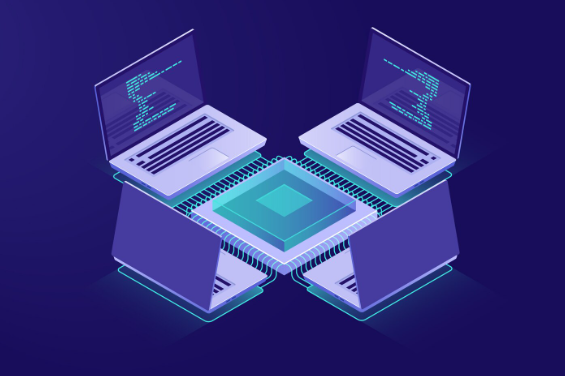Any technology professional, investor, or business leader in the U. S. should now learn about Quantum Computing: It is simply an imperative. Moreover, the digital world is growing faster, and Quantum Computing is thus becoming one of the 21st-century technologies with the highest transformation potential. Therefore, this guide will assist you with an explanation of quantum computing, its utilization, its impacts on the U. S. industry, and why Americans must be ahead in this field by 2025.
What is Quantum Computing?
Quantum computing denotes a new sort of computation that makes use of the principles of quantum mechanics. Whereas classical computers work with bits that refer to either 0 or 1, quantum computers use qubits. Qubits can be in more than one state at the same time because of superposition, and they can be entangled with other qubits for decision-making processes that far exceed any computational prowess with which we are currently familiar.
Quantum computers solve problems much faster than classical computers; the word “exponential” attempts to lend color to this statement. What classical computers or supercomputers take even thousands of years to complete, quantum computers can do within seconds. Consequently, American industries have been heavily investing in this new technology to gain an edge over competitors.
Why Quantum Computing Matters in the USA
The United States is one of the few countries leading R&D in quantum computation. IBM, Google, and Microsoft are among the key drivers of this technology, along with newer startups like Rigetti Computing. Further, millions of dollars have been provided by the U. S. government toward quantum research so as to keep its technological leadership among the nations of the world.
Quantum computing finds its application in cases where speed, accuracy, and computational power are of extreme importance. For example, stark applications can be found in finance, cybersecurity, health care, logistics, and defense industries, more so for quantum computing solutions. Therefore, U. S. professionals and businesses should understand its impact if they wish to stay competitive.
Some Major Applications of QuantumComputing in the USA
Financial Service
Money modeling and risk analysis are two areas of opportunity: They could be revolutionized by quantum computing. American banks and investment houses can apply quantum algorithms to portfolio optimization, analyze market trends, and respond to fraudulent activities in real-time.
Moreover, the increased speed of simulation and predictive analysis with quantum computing will make better and faster decisions possible by U. S. financial institutions. Thus, making quantum technology not only a leisure subject but a strategic necessity in America’s finance industry.
Healthcare and Pharmaceuticals
With the advent of quantum computing, a significant emphasis will be on drug discovery and personalized medicine. Pharmaceutical companies in the United States could simulate molecular interactions on a scale never before possible. This, in turn, makes the relatively new treatments and medications even faster, more accurate, and less expensive.
Moreover, it can assist hospital management operations, better genetic algorithm diagnoses, and help conduct complex genetic studies. This way, healthcare providers in the United States deliver improved health outcomes and operational inefficiencies.
Cybersecurity
Cybersecurity may thus be disrupted by quantum computing. While quantum computers provide the means to break classical encryption schemes, thus posing a challenge to businesses and government agencies in the United States in the process, they will also offer businesses the prospect of developing quantum-resistant cryptography to protect sensitive data in the US.
Furthermore, quantum-enabled cybersecurity tools can identify threats in real-time, predict cyberattacks, and harden the resilience of digital infrastructure. Hence, understanding quantum computing is essential to the U. S. cybersecurity professionals and enterprises.
Logistics and Supply Chain
In logistics networks, quantum computing can provide an optimal solution to complex problems, specifically for huge-scale operations across the U. S. Companies like FedEx, UPS, and Amazon could work with quantum algorithms to derive the fastest and cheapest routes, reducing fuel consumption, and facilitating deliveries.
Quantum computing would also be able to model supply chain disruptions and the predictions of their outcomes while allowing American companies to remain ahead in a fiercely competitive market. Accordingly, this sort of quantum technology is about becoming indispensable for logistics planning and operations.
Artificial Intelligence and Machine Learning
It is believed that quantum computing can have a far greater impact on enhancing artificial intelligence and machine learning capabilities. Training AI models has never been faster, thanks to quantum computers, which have the ability to process such large datasets at speeds never seen before, and to seek out patterns that classical machines may not spot.
Natural language processing, predictive analytics, and autonomous systems present the primary areas in which American tech companies apply quantum AI. Hence, quantum computing will undoubtedly be in the thick of all AI-driven innovation in the United States.

Challenges in QuantumComputing
While quantum computing holds immense power in theory, it faces numerous challenges. First, the technical challenges are those that stand in the way of building stable qubits and further reducing quantum error. Then, coming after is that quantum computers have to be kept at almost zero temperatures, considering the hardware sophistication on the opposite side, leading to a high cost of building and maintenance.
Another set of challenges slowing adoption and development is the limited availability of skilled quantum workers in America. Hence, American universities, research institutions, and companies invest in education and workforce development to generate quantum talent.
Future Trends in Quantum Computing
Several trends will craft the future of quantum computing in the USA:
- Cloud Quantum Processes- The rest of U. S. companies will access quantum computing through various cloud platforms instead of owning the physical infrastructure.
- Hybrid Classical-Quantum Systems-Ideal for certain complex calculations, will be carried out using classical and quantum computers simultaneously.
- Quantum Cryptography Extension-Quantum-resistant encryption will be used in the sectors of finance, defense, and healthcare, defending sensitive data.
- AI-Quantum Research Collaborative-Quantum computing will speed up AI research and development in American industries.
- Adoption by Government and Defense: The U. S. defense agencies will increasingly use quantum technology for national security purposes.
Meanwhile, with the continuing development of quantum computing technology, American companies, researchers, and government bodies will keep venturing into far-reaching applications, thus creating avenues for innovation, investment, and growth.
How American Businesses Can Leverage Quantum Computing
There are several ways in which U. S. business entities can harness quantum computing:
- Invest in Quantum Research — Engage with universities and startups to look into tangible quantum applications.
- Experiment with Quantum Cloud Services — Experiment with algorithms on quantum platforms from IBM, Microsoft, and Amazon.
- Build Quantum-Ready Security — Enter into the era of quantum threats with quantum-resistant cryptography.
- Train Staff Members — Build competencies in principles and applications of quantum computing in IT and R&D teams.
- Collaborate in Quantum Ecosystems-Join the U.S.-based consortia and partnerships in quantum innovations.
Aside from that, companies that move early into quantum computing may place themselves as the leaders in the next American technological revolution.
Conclusion
Therefore, Quantum Computing is about to revolutionize all the industries stretching across America. From finance, healthcare, cybersecurity, logistics, and AI, quantum technology offers unparalleled opportunities for innovative solutions, efficiency, and growth.
Furthermore, American professionals, businesses, and investors who grasp and adopt quantum computing today will probably be the front-runners in tomorrow’s technological landscape. As quantum computing continues to mature, it will transform how Americans work, innovate, and solve somethings of the most difficult problems in the world.
In this way, keeping abreast of the ever-changing field of quantum computing is not just a curiosity in technology but something crucial for anyone who wishes to prosper in the ever-fluctuating digital economy of the United States.



